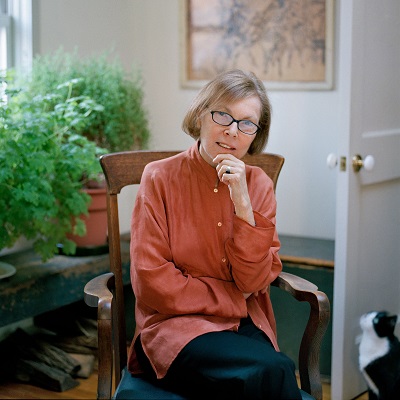De Amerikaanse schrijfster, journaliste, biografe en essayiste Janet Malcolm werd geboren als Jana Klara Wienerová op 8 juli 1934 in Praag. Jana Wiener was een dochter van de Praagse arts Joseph Wiener (later Joseph A. Winn) en de advocaat Hanna Taussigová; haar jongere zus is de Amerikaanse journaliste Marie Winn (Marie Krajbich). Haar familie vluchtte na de Duitse bezetting van Tsjechoslowakije in 1939 naar de VS. Janet Wiener bezocht de High School of Music and Art in New York en studeerde aan de Universiteit van Michigan. Sindsdien werkt Wiener als redacteur bij het tijdschrift The New Yorker. In haar artistieke werk hield ze zich bezig met collaga’s. Tot aan zijn dood in 1975 was ze getrouwd met de literair criticus Donald Malcolm, die net als zij bij het tijdschrift The New Yorker werkte. Vanaf 1975 was ze getrouwd met Gardner Botsford, redacteur van de New Yorker, die in 2004 op 87-jarige leeftijd overleed. Malcolm was betrokken bij de controverse die in 1981 uitbrak over het werk van psychoanalyticus Jeffrey Masson in de Freud-archieven in New York en in Freuds appartement in Londen en bekritiseerde Massons stellingen over Sigmund Freuds veranderde houding ten opzichte van de verleidingstheorie en zijn benadering van het archiefmateriaal. Malcolm schreef erover in de New Yorker en publiceerde in 1984 het boek “In the Freud Archives”. Masson spande vervolgens een rechtszaak wegens smaad aan tegen de New Yorker en tegen Malcolm voor $ 10 miljoen, die de New Yorker uiteindelijk won. Malcolm ontving in 2008 de PEN/Jacqueline Bograd Weld Award for Biography voor het boek over Gertrude Stein en Alice B. Toklas, evenals de Judy Grahn Award en een Lambda Literary Award. Ze stond in 2013 op de shortlist voor de National Book Critics Circle Award met “Forty-One False Starts”. Haar essay “The Journalist and the Murderer” (1989) begon met de stelling: “Elke journalist die niet te dom of te vol van zichzelf is om op te merken wat er aan de hand is, weet dat wat hij doet moreel onverdedigbaar is.”
Uit: Forty-One False Starts. Essays on Artists and Writers
“3
All during my encounter with the artist David Salle—he and I met for interviews in his studio, on White Street, over a period of two years—I was acutely conscious of his money. Even when I got to know him and like him, I couldn’t dispel the disapproving, lefty, puritanical feeling that would somehow be triggered each time we met, whether it was by the sight of the assistant sitting at a sort of hair-salon receptionist’s station outside the studio door; or by the expensive furniture of a fifties corporate style in the upstairs loft, where he lives; or by the mineral water he would bring out during our talks and pour into white paper cups, which promptly lost their takeout-counter humbleness and assumed the hauteur of the objects in the Design Collection of the Museum of Modern Art.
Salle was one of the fortunate art stars of the eighties—young men and women plucked from semi-poverty and transformed into millionaires by genies disguised as art dealers. The idea of a rich avant-garde has never sat well with members of my generation. Serious artists, as we know them or like to think of them, are people who get by but do not have a lot of money. They live with second or third wives or husbands and with children from the various marriages, and they go to Cape Cod in the summer. Their apartments are filled with faded Persian carpets and cat-clawed sofas and beautiful and odd objects bought before anyone else saw their beauty. Salle’s loft was designed by an architect. Everything in it is sleek, cold, expensive, unused. A slight sense of quotation mark hovers in the air, but it is very slight—it may not even be there—and it doesn’t dispel the atmosphere of dead-serious connoisseurship by which the room is dominated.
4
During one of my visits to the studio of the artist David Salle, he told me that he never revises. Every brushstroke is irrevocable. He doesn’t correct or repaint, ever. He works under the dire conditions of performance. Everything counts, nothing may be taken back, everything must always go relentlessly forward, and a mistake may be fatal. One day, he showed me a sort of murdered painting. He had worked on it a little too long, taken a misstep, killed it.”

